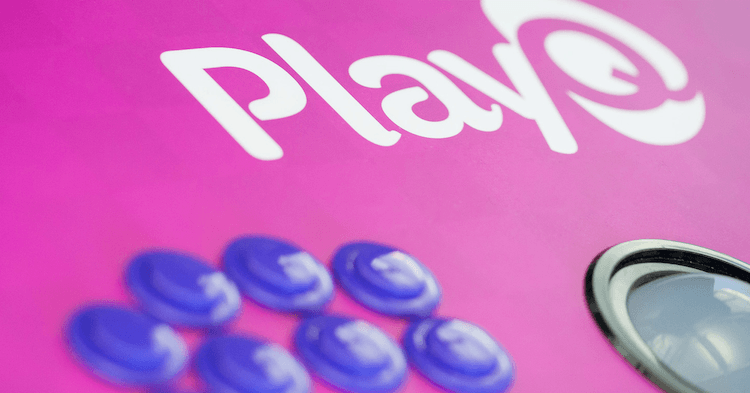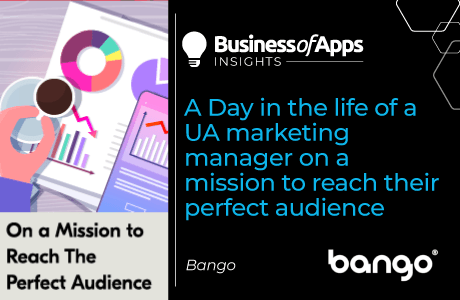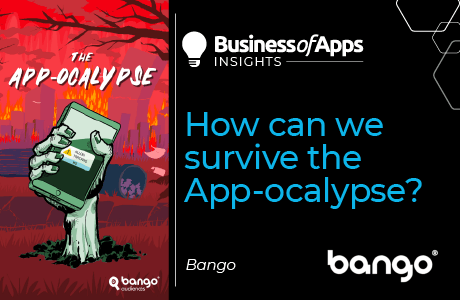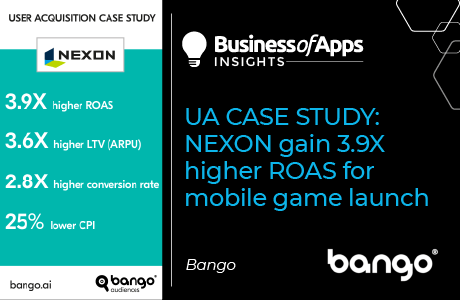
The Bango Three Minutes With series talks with app developers around the world to get their views and experiences with user acquisition and monetization in the global marketplace. In this article, Bango Marketplace talked with Noemie Hernandez, Director of User Acquisition at PlayQ about the importance of customer loyalty and user retention.
PlayQ has seen some incredible growth in the past four years. Right now, the company has five casual games, and most recently, the company has been focusing on marketing Charm King, a match-three puzzle-adventure.
PlayQ is a mobile game company was founded in 2007 in Santa Monica, California. Our aim is to deliver tomorrow’s nostalgic game experiences. We rely on the best people to craft unforgettable games that millions love! We combine beautiful graphics with engaging gameplay to create amazingly fun games for everyone! We’re focused on delivering the best gaming experience no matter where you play—on your PC, tablet, or mobile device.
Bango Marketplace: Charm King is doing well in Germany at the moment, why is that?
Noemie Hernandez, PlayQ: [laughs] Good question, but we’ve invested a lot into Charm King in terms of the acquisition of the game in Germany. We saw its potential in that market early on, so we invested in user acquisition.
But, there are multiple sides of that investment that boil down to performance marketing; using the channels everyone is using today like Facebook, Google, etc.; creativity in our ads; and app store optimization and having the relationship with the app stores.
BM: What is most important to you as an outcome of your marketing campaigns on Facebook?
NM: A positive return on ad spend, which is a mixed bag of everything. Any metric is not perfect, so we look at all parameters to be sure we aren’t overlooking anything. Retention is essential for us and helps us know if the ad we created is a good offer or experience to the user as well as a good reflection of the game. Retention will be low if you click on a bad ad, people will leave. Some don’t care about that metric, but I think it’s essential.
The number of installs is vital to us; we have to be sure there’s a decent number of people playing the game.
BM: What would you want to change about that scenario if you could?
NM: Well, the challenge that we have is to find new market opportunities. On Facebook, there are options for buying customers who have paid for games like ours, but it is very expensive. Customer installs is very expensive too, so we will pay crazy money to pay for just one install. It’s hard to find a balance and narrow down the targeting. I want to buy users who are suitable for the app while maintaining a decent cost.
Most mobile advertising is facing this scenario. And, for mobile games and casual games, the main issue is a limited amount of users who actually pay. So that makes the audience we need to reach even narrower.
BM: What do you see as the newest trend in mobile game marketing?
NM: The usage of ads. Less than five percent of users pay in-app, so how do we make money on that 95%? We’re pushing more ads out there to boost daily rewards and making money from that, but if this becomes a more significant trend, I think success will depend on the types of games adopting that tactic. Hardcore games probably won’t go down that road, but causal games are different.
Context-aware tech: The secret to 81% more conversions
Learn how leading apps are using context-aware technology to deliver perfectly-timed offers, reduce churn & transform passive users into loyal fans.
Learn moreWith casual games, you play them to pass the time, you don’t care too much, so there will be more ads for casual games. Now we see a new category emerge – hyper-casual games like Voodoo, that are heavily monetized with ads. These companies are releasing new games each month, and users play them for only four or five minutes a day. Those apps are heavily monetized with ads.
BM: Do you treat acquisition and monetization as separate marketing activities?
NM: We are considering it. But they do sit in different departments and yet they go hand in hand.
There is the current trend of gaming companies building growth departments to merge user acquisition and monetization to find new ways to help monetization or vice versa.
Increasingly in the digital industry, it’s harder and harder to compete against the big guns, they’re taking everything [..], and most of the revenue comes from a handful of companies. It’s very challenging for smaller companies to compete against these guys.
BM: So, what’s the solution to that challenge?
NM: The good thing about smaller structures is that they are more agile and can move faster. We have to keep being innovative and not fear failure, and that’s what small gaming should focus on, rather than trying to copy what big companies are doing. They might have more power to succeed, and they know how to play the game which means smaller gaming companies need to be innovative in all areas thinking and acting differently when it comes to doing user acquisition, marketing, and creativity.











